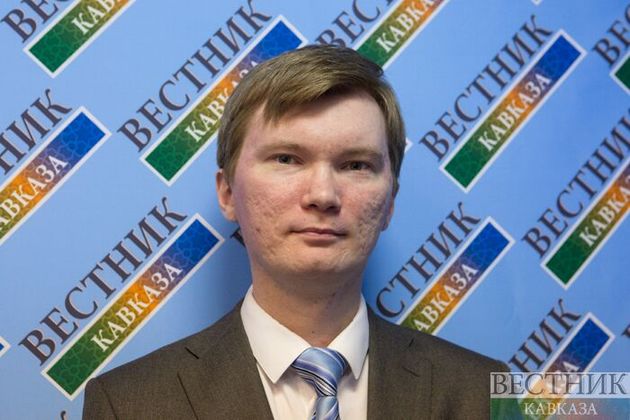There is no more interesting subject of research than the life of a language in an irregular or, even more so, in a foreign-language environment, senior analyst at Vestnik Kavkaza Andrey Pertrov said in the National Question program on Vesti.FM radio station.
"Being a teacher of Russian as a foreign language, first of all, I would like to note that the standardization and development of language norms are certainly necessary at the state level for the creation of a single national code. But it should be an information organism, not just a code. The language shows its strength and vitality when the impact of standards on speech is weakened,” the senior analyst said.
In this regard, the picture of the Russian language’s existence in the post-Soviet space is probably an ideal situation for those wishing to observe linguistic survival in natural conditions, he stressed.
”First, in many respects, proficiency in Russian remained at the Soviet level. Too little time has passed since the collapse of the USSR, less than 29 years, which means, roughly speaking, the entire post-Soviet population is 40 and older (especially those over 50, who received higher education in the Soviet Union) speaks the same versions of the Russian language that existed in the Soviet times. And this, by the way, is the element that continues to ensure the unity of the former Soviet republics: everyone has different passports for a while, but we all learned the same language in childhood", Andrey Petrov said.
The second interesting point is the universality of the transformations of the Russian language in a particular language environment, Pertov noted.
"If we are talking about the Russian population of other countries, then local vocabulary and pronunciation inevitably penetrate its speech, but the grammar holds very tightly. Those who have learned Russian as a foreign language, on the contrary, do not know grammar perfectly, as the categories uncharacteristic of their native language fall out. For example, in Armenian and in Turkic languages, such as Azerbaijani, Kazakh, Kyrgyz, Turkmen and Uzbek, there is no gender category, therefore their speakers have difficulty in distinguishing between the second and third declension of nouns in Russian,” the senior analyst explained.
At the same time, the expert emphasized that the quantity and quality of language errors directly depend on the scope of the language.
”The third interesting point is that in their countries, representatives of Russian-speaking communities often speak Russian cleaner than labor migrants coming from these countries to Russia because communication of migrants in Russian is usually limited to scenarios of working contacts with the employer and among themselves. Perhaps that is why our tourists are so surprised when they go to the near abroad and find that many people are speaking Russian normally,” the expert explained.
"And this, returning to the beginning, is an important element of communication between Russia and its neighbors, and it is very correct that we have a separate agency, Rossotrudnichestvo, which deals with Russian language programs abroad: if we preserve the language, we will preserve relations at the human level," the analyst concluded.
Andrey Petrov on Vesti.FM: the Russian language continues to ensure unity of former Soviet republics

9540 views





